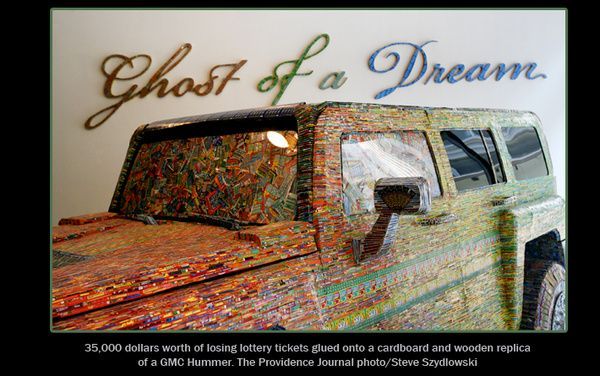This year the Heart and Stroke Lottery had a 1 in 3 chance of winning. Actually they said 1 in 3, best odds ever. 1 in 3 is not actually an odds ratio, but the 1 to 2 odds are still the best odds ever. Odds are the ratio of wins to losses. Either way, technically there are 71,653 prizes and 250,000 tickets which are a 28.66% probability of winning, much less than the reported 33.33% chances of winning. But let us assume that the 1 in 3 is correct for the sake of simplicity. So you if bought 3 tickets at 1 in 3 odds you would have to win, right?
The probability of the first ticket wining is obviously 1 in 3. The probability of the second ticket winning is close to 1 in 3 but not exactly since the probability would have gone down in the first prize won, or up if it had not, but this is a tiny difference in 250,000 prizes so we'll ignore it. So by that the third ticket also has a 1 in 3 probability of winning. Since we are ignoring the effect of the missing tickets we are essentially assuming independence amoung the tickets, therefore we can multiply the three probabilities. That gives us that the probaility of just less than 4% of all three tickets winning. Which is not great, but it's not what we are looking for either.
So what about just winning one prize in 3 tickets. Well you do double your chances of winning, but those chances are still not that great. The probability of winning one or more prizes if you bought only three tickets = the probability of winning 1 or 2 or 3 prizes = 1- P(no prizes)=1-(2/3)^3. Which is about 70% chance of winning which is double the original 33.33%, but clearly not a guarantee. If you double the number of tickets to 6, then you get all the way to 91% chance of winning a single prize. Of course the only way to guarantee you will in a prize is to buy 178348 tickets, one more than the number of non-winning tickets.
But then again the fact that you are supporting a good cause changes the game completely. This way you get to donate money to a good cause, gamble (which is always fun), and get a tax break all in one. What could be better.




